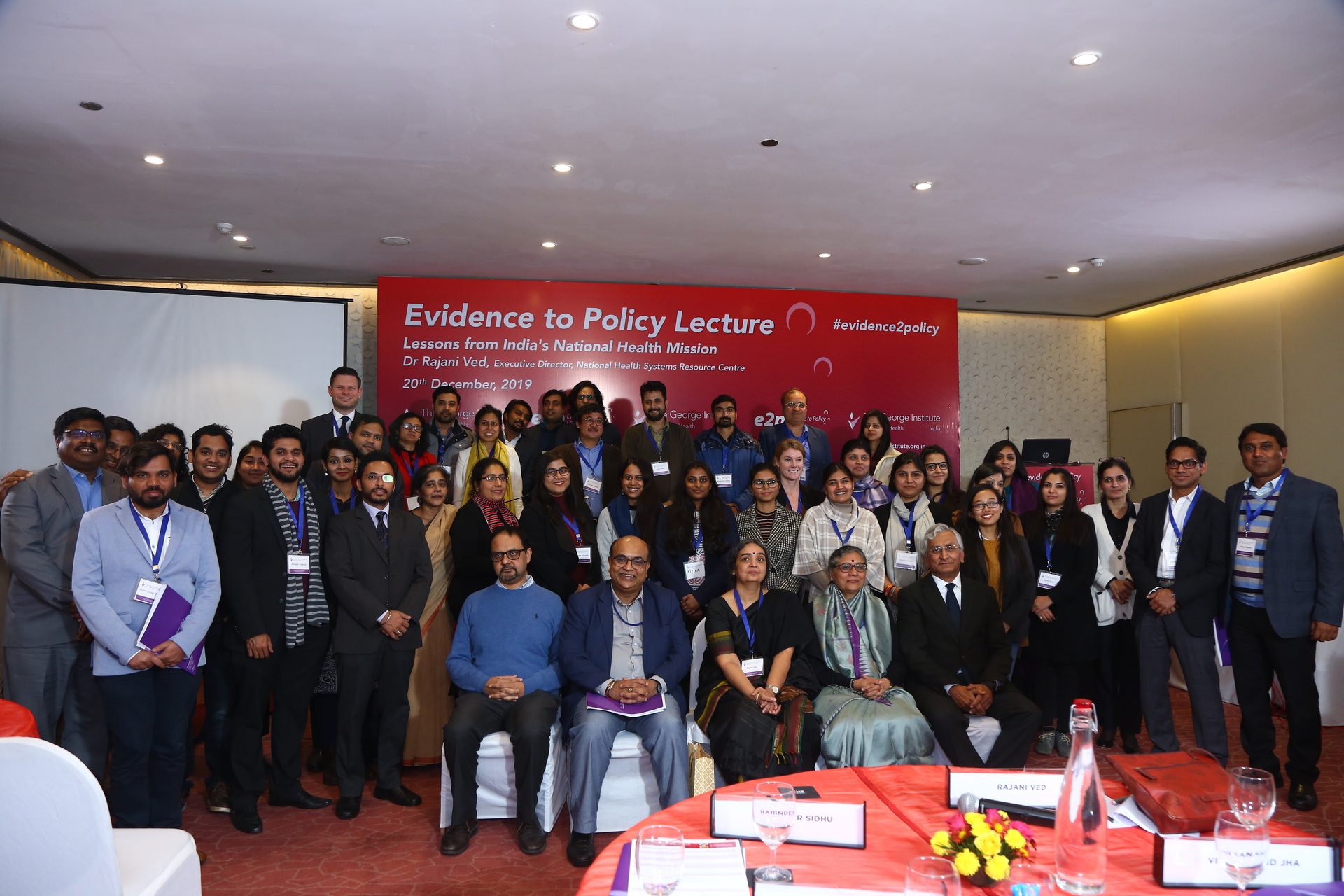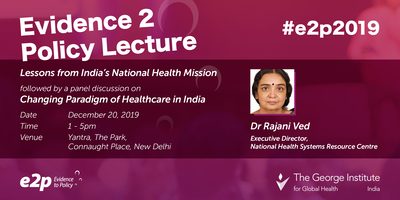
Health researchers and policy-makers urged to bridge the know-do gap
NEW DELHI, DEC 20. There is a need to embed evidence generation processes into the policy cycle and leverage increased use of evaluation at political levels. This involves building the capacity of researchers to convert information into data and knowledge that can be used and increasing their ability to synthesise various sources of knowledge into policy-usable matters.
Delivering the George Institute India’s annual evidence2policy lecture on the topic: Evidence to Policy – Lessons learnt from the National Health Mission”, Dr Rajani Ved, Executive Director of the National Health Systems Resource Centre (NHSRC) said that there was an urgent need to build capacity to bridge the know-do gap and the commissioning of evidence should be done by those who implement the evidence.
Dr Ved, who currently leads the design and implementation support for India’s primary health care initiative under the Ayushman Bharat program, said that a key barrier to evidence informed policy processes was that knowledge producers and knowledge users were uneven and hierarchical. The nature of evidence to inform policy spans reviews including systematic reviews and rapid evidence synthesis, research studies, case studies of a particular intervention, pilot intervention, field reports , best practice cases, expert opinions and tacit knowledge of practitioners.
She said it was critical to build capacity of researchers to do rapid evidence synthesis and systematic reviews as it will ensure that timely and opportune evidence is available to the policy makers and highlight the role of context in introduction, interpretation and application of evidence.
Dr Randeep Guleria, director of the All India Institute of Medical Sciences, who was the Chief Guest on the occasion said that the burden of disease has changed from communicable to non-communicable diseases and the way to manage them has also changed from being curative to being investigative. This is where, he said the role of evidence comes in.
The Australian High Commissioner, Harinder Sidhu who was the Guest of Honor congratulated the George Institute for organising a lecture series around bridging the gap between evidence and policy. She said health was a focus for the Australian Government in the new economic strategy they have launched recently and hoped that the collaboration between academic institutions like TGI and the Australian Government would increase substantially in the future.
In his opening remarks, Prof Vivekanand Jha, Director of the George Institute India said that the annual evidence2policy lecture series was a very important initiative from TGI to build the crucial gap between research and evidence. The George Institute India, he said is committed to knowledge translation and make evidence available to policy makers.
The lecture was followed by a stimulating panel discussion on the theme of Changing Paradigm of Healthcare in India. Panellists included Prof Abraham Joseph from CMC Vellore; Dr Krishna D Rao from John Hopkins University; Professor Rama Baru from Jawaharlal Nehru University and Dr Shirshendu Mukherjee from Biotechnology Industry Research Council (BIRAC). The panel discussion was moderated by Dr Devaki Nambiar, Head of Health Equity Research at the George Institute India.
The panellists talked about the availability or non-availability of evidence on various health issues, especially at the level of primary health care. Translating evidence into policy requires a broader understanding of health systems, how to integrate community health with larger health policy, an understanding of how NCD implementation in health systems is different and how capacities for using data and evidence for policy-making need to be built. There was also a thrust on democratisation of health systems.
Krishna D Rao from John Hopkins University said primary care models presently are not designed as health systems do not consider state level contexts. Hence, communities seem to be bypassing primary health centres. This needs to be addressed. Dr Mukherjee, another panellist said health systems need clinical validation and health systems embedding for scalability.




